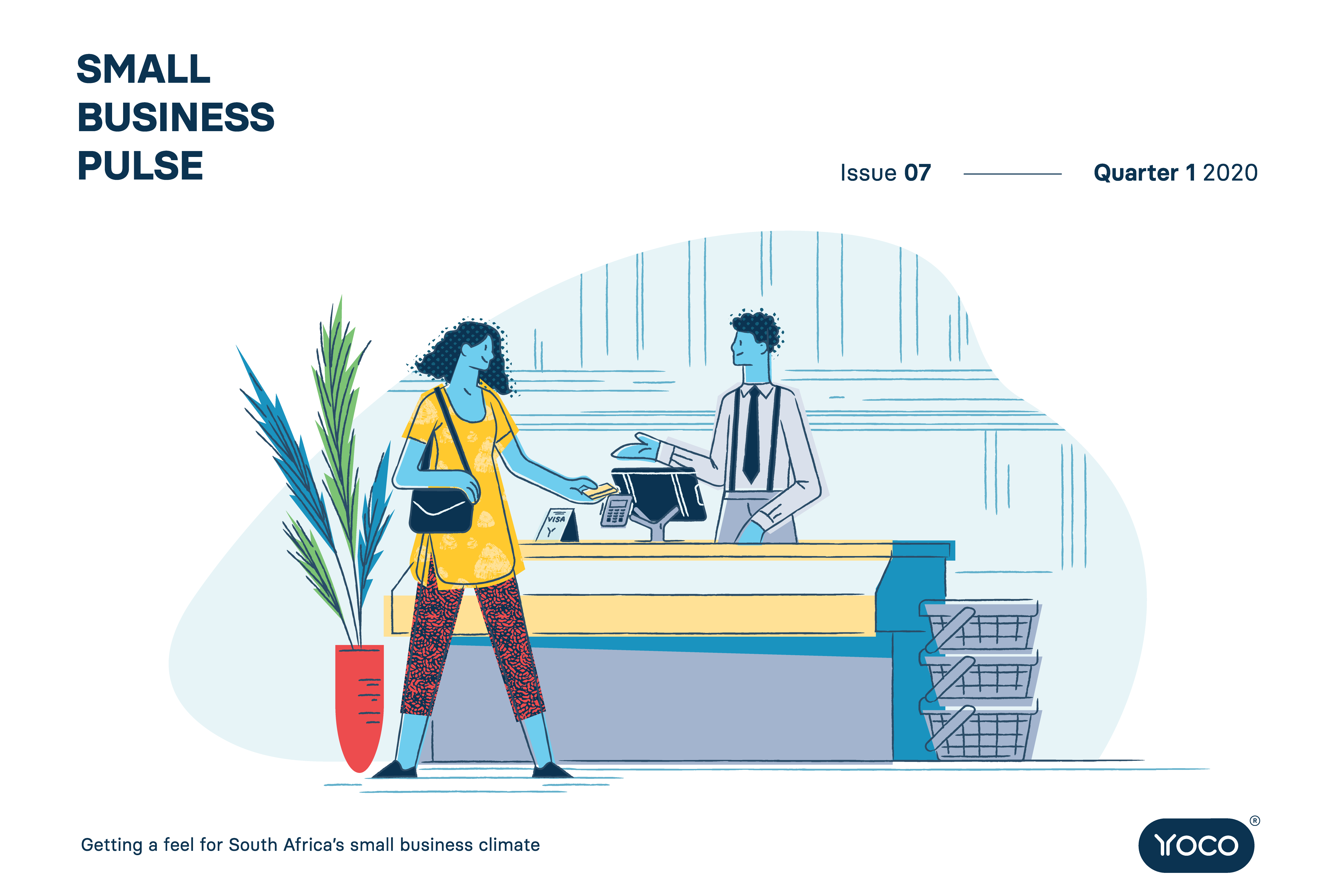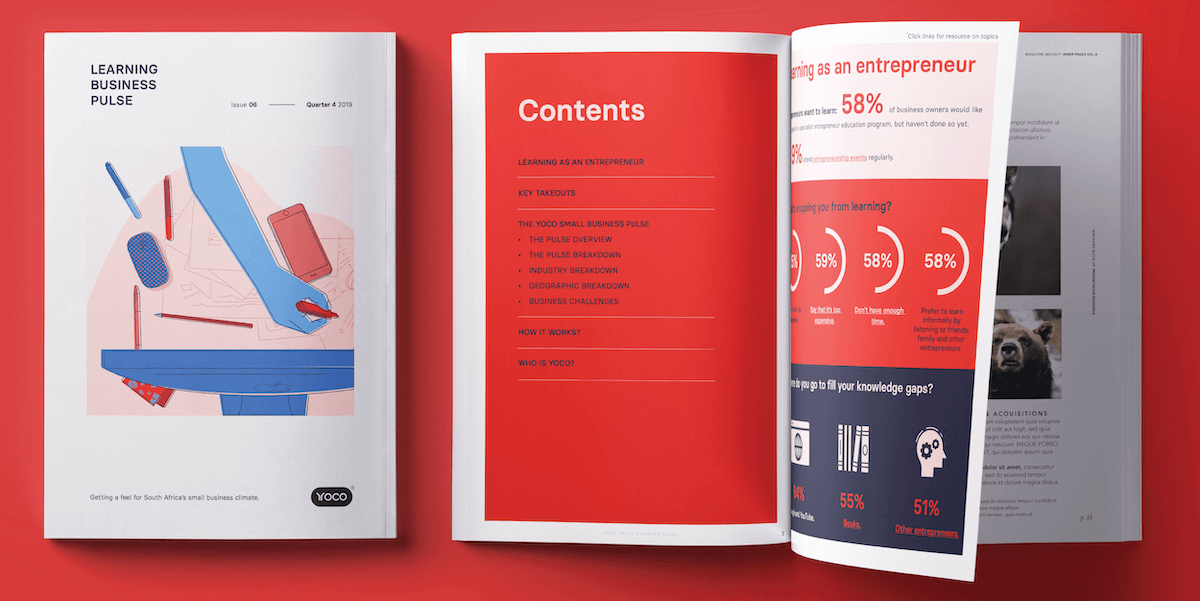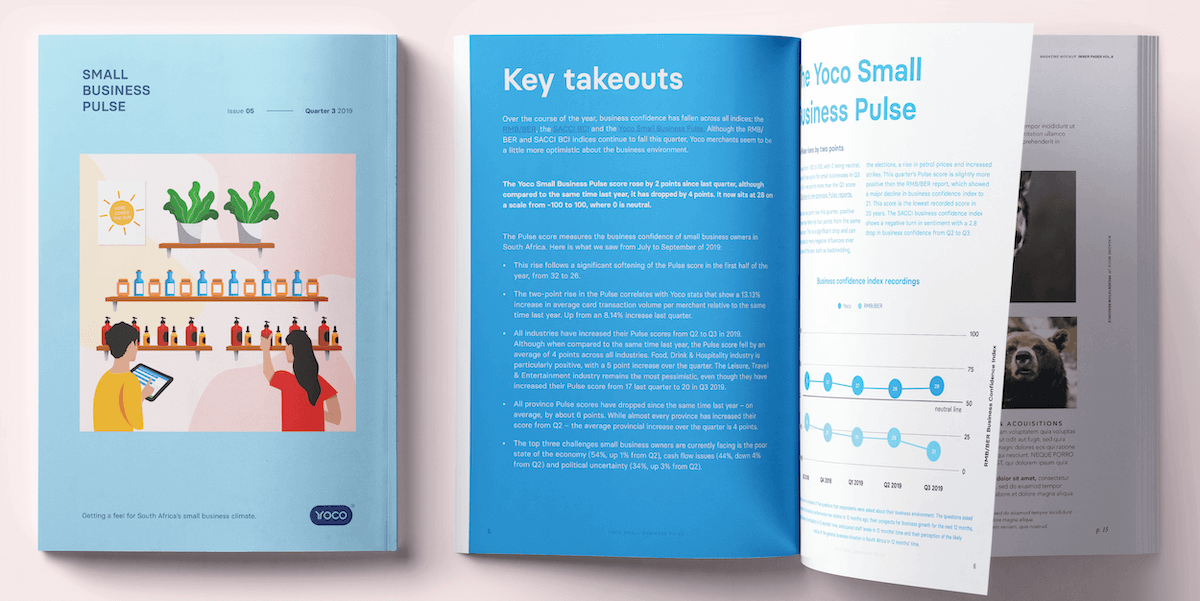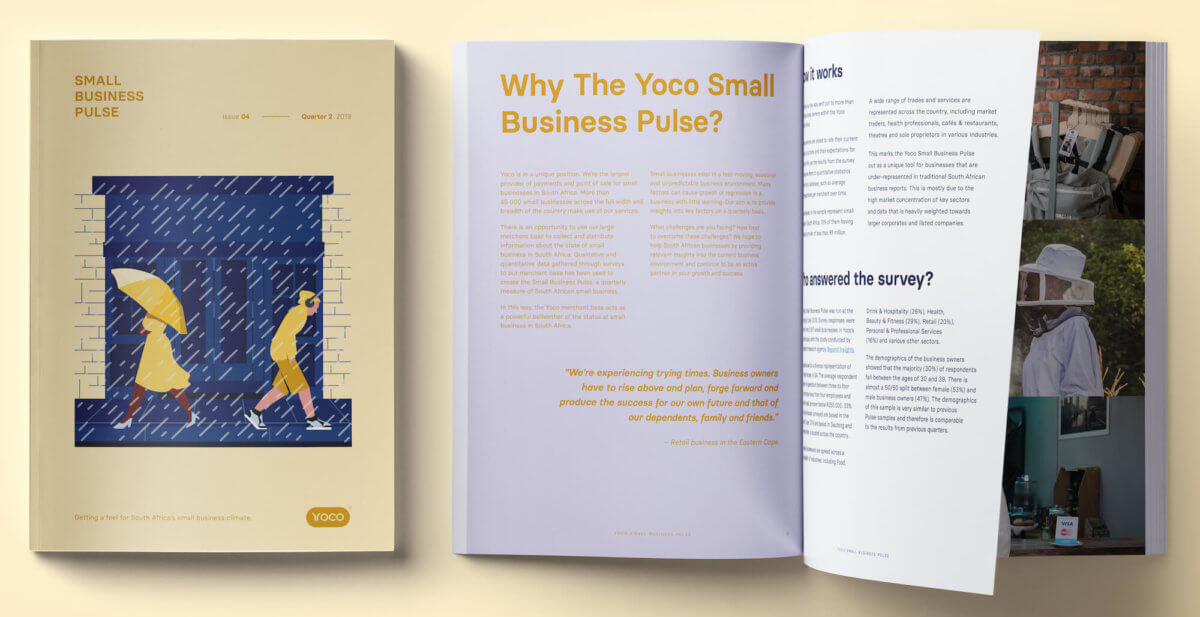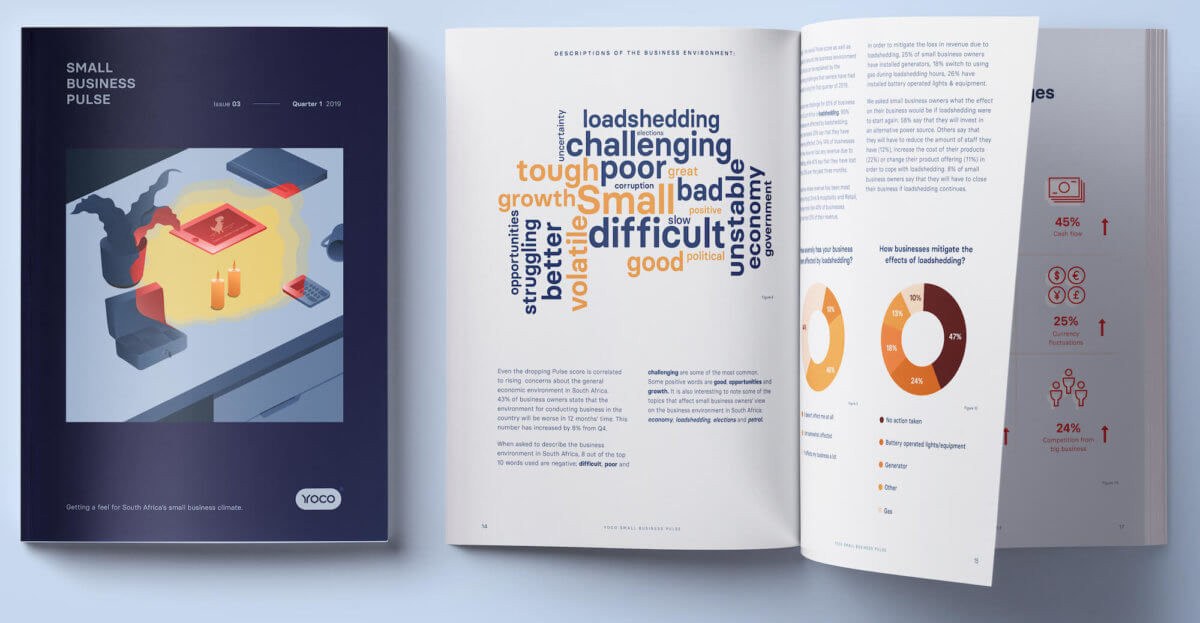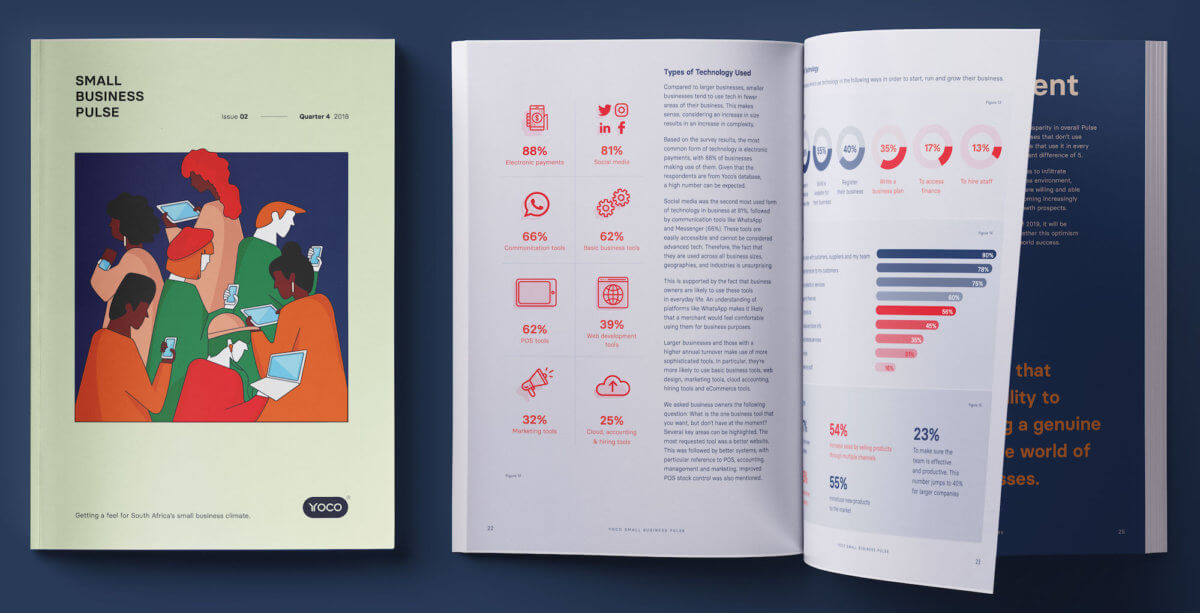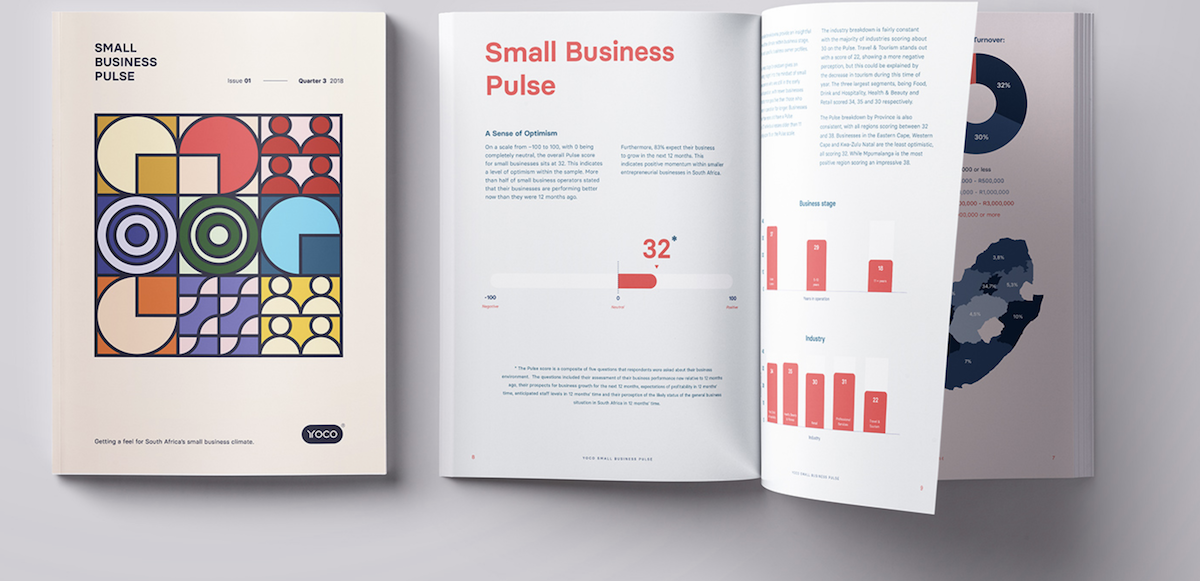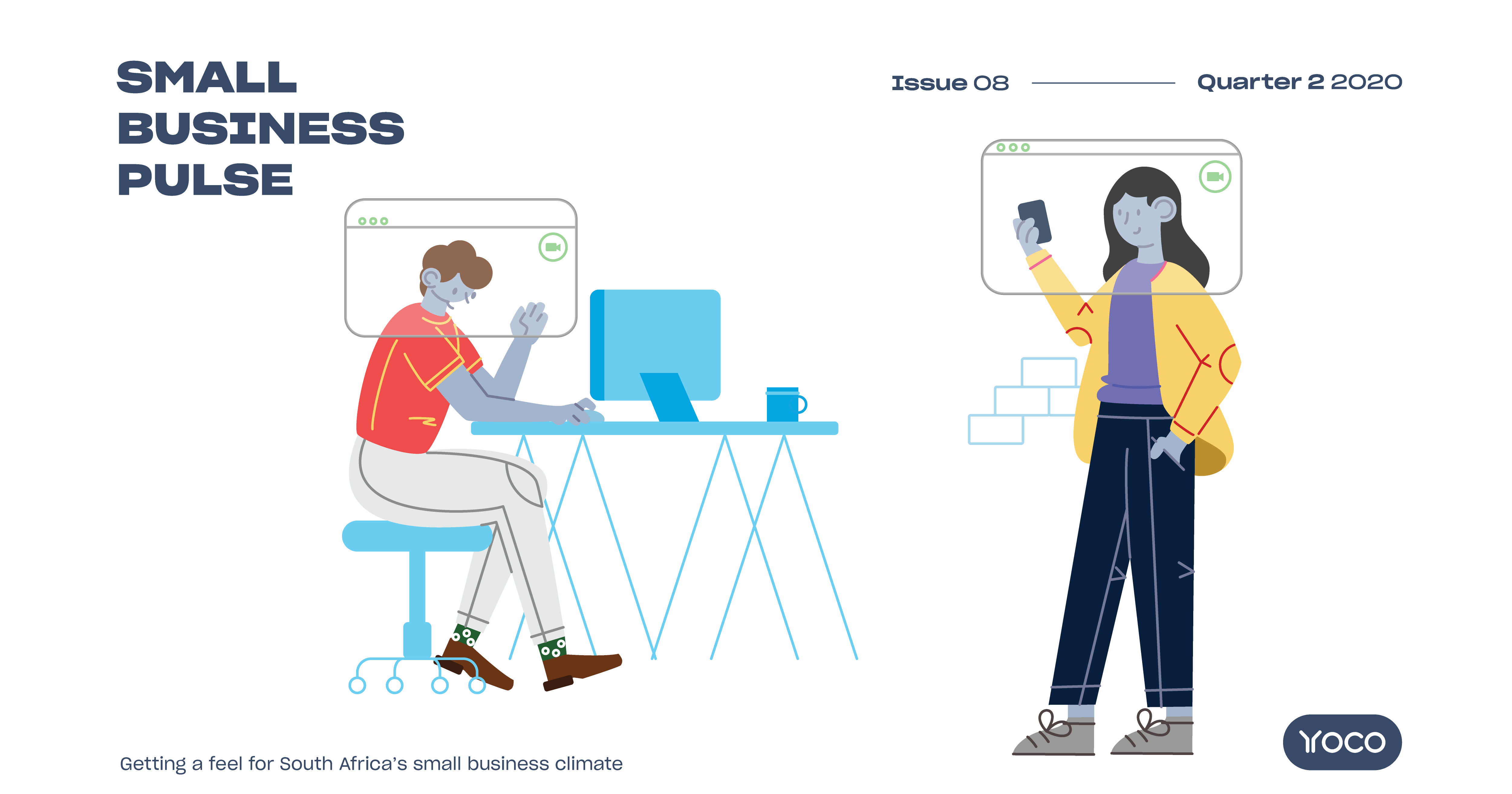
Tracking small business sentiment during COVID-19 in South Africa
The success of our economy lies in small business. Already, they constitute a disproportionate number of formalised businesses, contribute around one third of GDP and provide employment to millions of South Africans.
As the COVID-19 pandemic continues, many of these small businesses are no longer able to function and worry about the consequences the pandemic is having on their revenue, sales and cash flow. As South Africa’s lockdown extends into its fifth month, more and more business owners are closing their doors permanently and the rest worry if that time is coming for them soon.
7% of Yoco’s small business owners have had to close their doors, permanently.
Every quarter Yoco tracks small business sentiment across South Africa. This measurement has become a great indicator for the health of those businesses.
Before the pandemic, owners were perpetually optimistic about their future. On a scale of -100 to 100, small business sentiment scored an average of 30 points. Last quarter, that score dropped to an all time low of -12 (from 35 in Q4 2019). It was the first time we saw negative sentiment amongst small business owners in South Africa.
This quarter, the Pulse score has improved to -5 points. Business owners are ultimately still pessimistic about their futures, although less so than at the beginning of the pandemic.
This is due to the easing of lockdown laws, which has allowed businesses to operate more freely.
In March, 81% of businesses owners were not able to operate due to the lockdown. Now, that number has dropped to 20%.
Take a look at the health of small businesses in South Africa below.
The information and stats are based on surveys taken from the Yoco Small Business Pulse. The responses were collected at the beginning of
July, from 4 235 business owners across all provinces and industries.
Tracking small business sentiment during COVID-19 in South Africa
We’ve said it before, and we’ll say it again: the success of our economy lies in small business. Already, they constitute a disproportionate number of formalised businesses, contribute around one third of GDP and provide employment to millions of South Africans.
As the COVID-19 pandemic continues, many of these small businesses are no longer able to function and worry about the consequences the pandemic is having on their revenue, sales and cash flow. With each day’s lockdown, more and more business owners worry about how they’ll pay their staffs’ next paychecks, if their stock will expire and whether they’ll be able to order the supplies they need when it’s time to reopen.
On a scale of -100 to 100, small business sentiment has dropped to an all time low of -12 (from 35 in Q4 2019). This is the first time we have seen negative sentiment amongst small business owners in South Africa.
The impact of lockdown and the COVID-19 pandemic is felt across all small businesses, but according to survey data collected at the beginning of April, small businesses in Leisure, Travel & Entertainment and Retail are showing the most negative sentiment. Other businesses that are particularly concerned are those with more than five employees and businesses based in the Eastern Cape and Western Cape.
The information and stats below are based on surveys taken from the Yoco Small Business Pulse. The responses were collected at the beginning of April, from 7 439 business owners across all provinces and industries.
To view this information by the industry that your business is in, click on your industry below:
Swipe for more
Swipe for more
The Small Business Recovery Monitor
The recovery monitor is a live small business transaction data resource. It shows the daily progression of small businesses as they recover and re-start after the COVID-19 national lockdown. The index provides unique insight into the small business economic landscape. Click here to view it.

